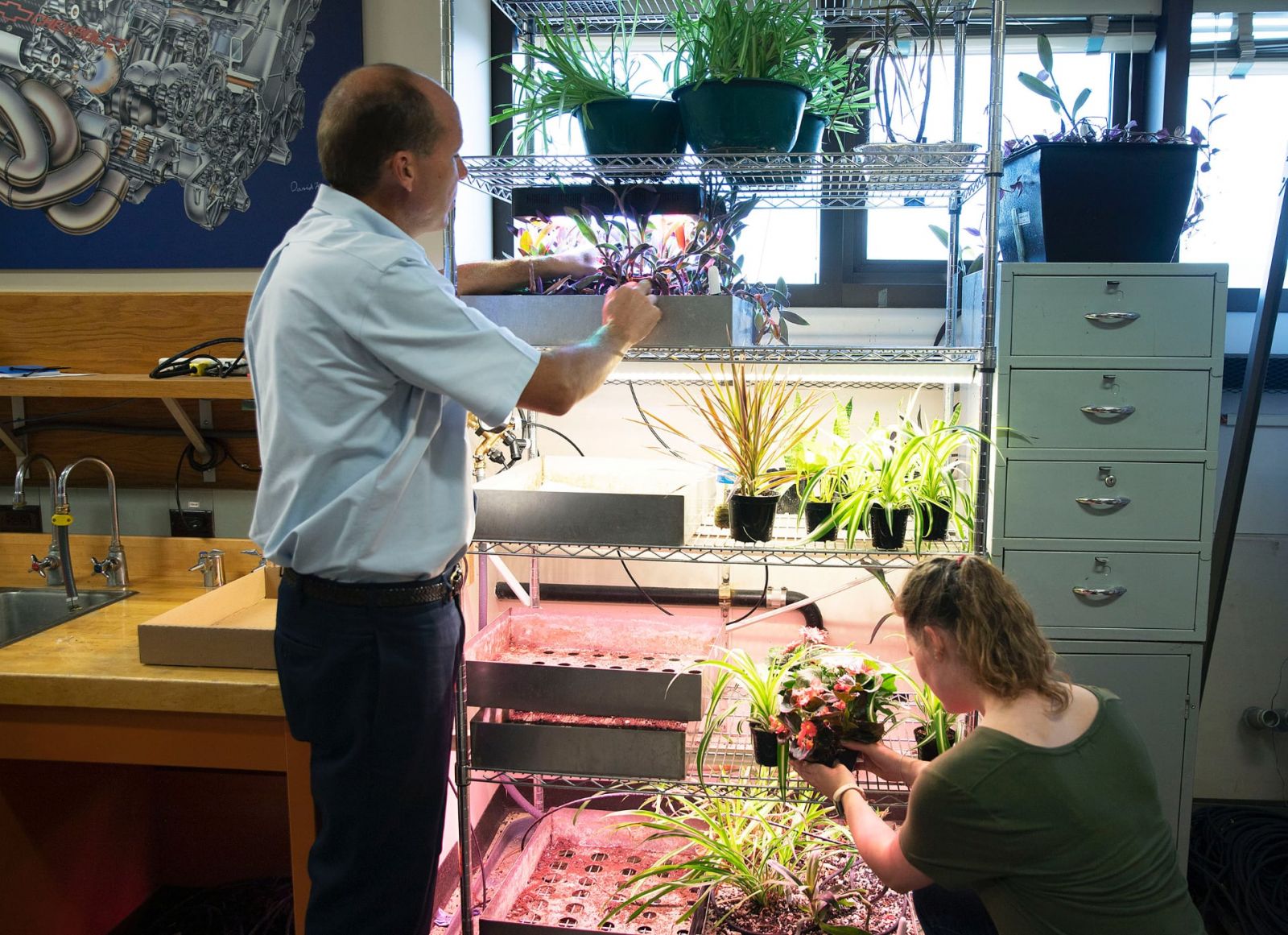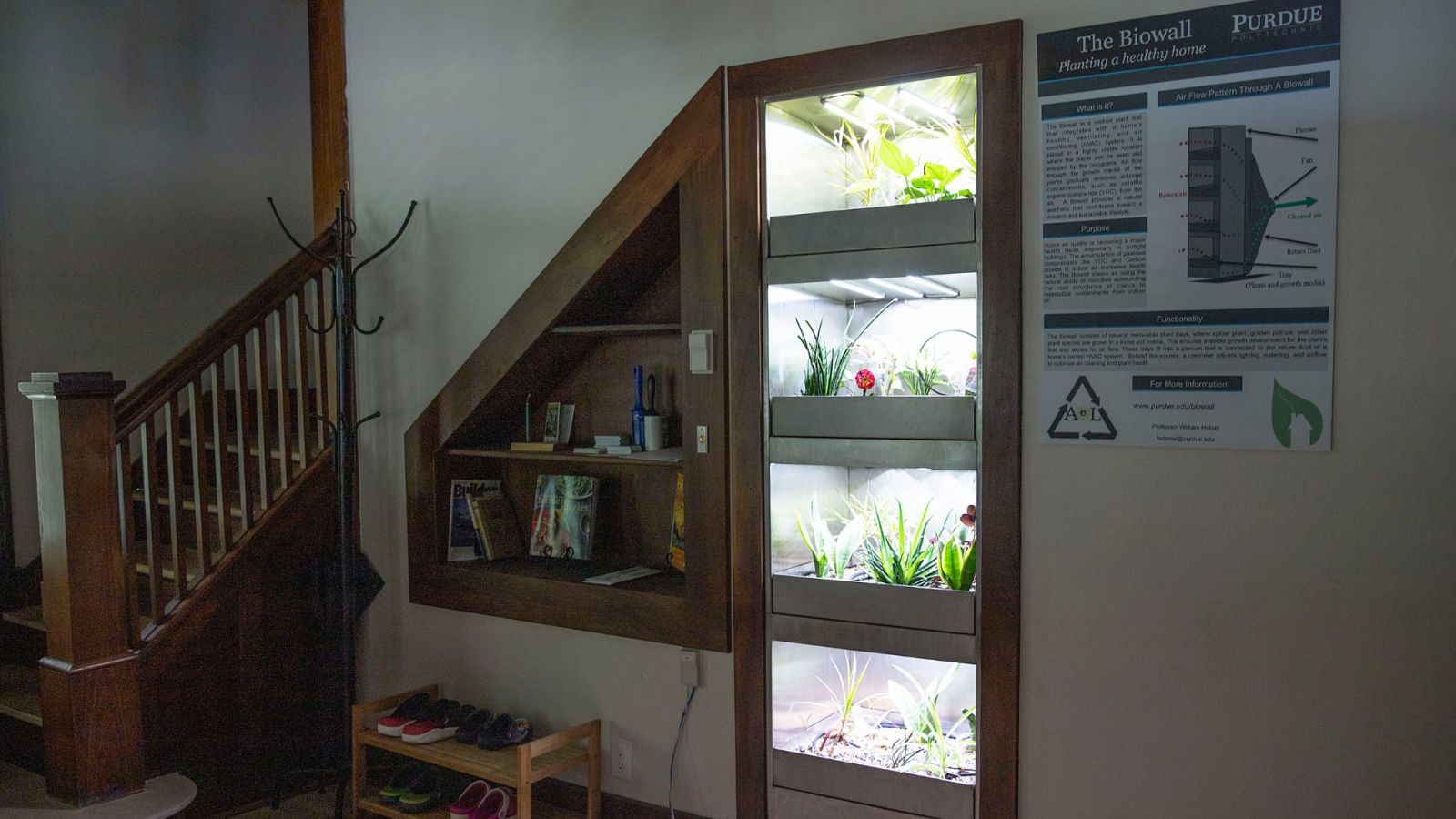
Good insulation helps keep homes and offices cool in the summer and warm in the winter, but pollutants can end up trapped inside. A professor and students in Purdue Polytechnic’s School of Engineering Technology have been working for several years on a solution called the Biowall.
“The Biowall is an eco-friendly air filtration system that can be used in residential buildings to improve air quality,” said Bill Hutzel, professor of mechanical engineering technology and leader of the research team. “We combine Purdue expertise in building design, engineering and agriculture to help with the home of the future.”
Plants are integrated into the return duct of an HVAC unit, allowing air to pass through. Each plant’s roots absorb volatile organic compounds from passing air, removing the compounds from circulation.

“I come from the design side where we know that energy efficient homes are very well insulated, but they also trap and accumulate volatile organic compounds like toluene,” said Hutzel.
The Biowall research team worked with Whirlpool Corp. to transform an existing home one block from Purdue’s West Lafayette campus into the ReNEWW house, a sustainable living showcase and research laboratory. The team has been monitoring the performance of the biofilter and the health of the system’s plants since 2014.
Danielle LeClerc, a student in mechanical engineering technology, is using data from NASA (the National Aeronautics and Space Administration) in the Biowall project.
“I work with data from NASA and other research organizations to figure out which plants are likely to perform the best in keeping the air clean inside the home,” said LeClerc. “It is interesting to incorporate data from a space agency like NASA into the everyday home of the future.”
Read the full Purdue Research Foundation story.

